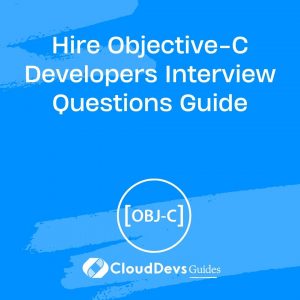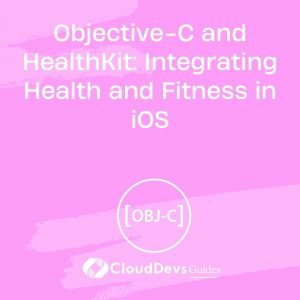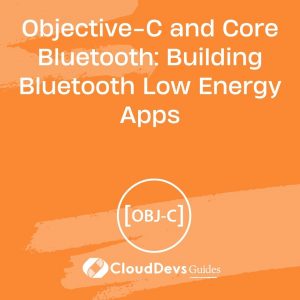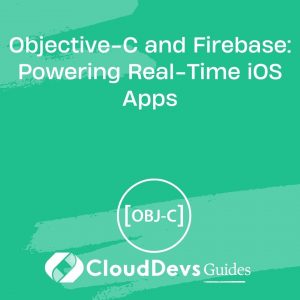Hire Objective-C Developers Interview Questions Guide
Objective-C, the primary programming language for iOS and macOS app development, plays a crucial role in building robust and scalable applications. When hiring Objective-C developers, it’s essential to assess their proficiency in iOS development, CocoaTouch framework, memory management, and understanding of Objective-C language features. This guide will assist you in navigating the hiring process effectively, enabling you to identify candidates with the right skills for your mobile app projects.
Table of Contents
1. Reasons to Hire Objective-C Developers
Embarking on the journey to hire Objective-C developers? Here are key reasons to consider:
1.1 iOS and macOS Development
Objective-C is the primary language for developing applications on iOS and macOS platforms, making it essential for building native apps.
1.2 CocoaTouch Framework
Objective-C developers are well-versed in the CocoaTouch framework, which provides the building blocks for iOS and macOS application development.
1.3 App Store Presence
Hiring Objective-C developers allows you to tap into the vibrant iOS App Store ecosystem, reaching a vast user base.
2. How to Hire Objective-C Developers
Follow these steps for a successful Objective-C developer hiring process:
2.1 Job Requirements
Define specific job prerequisites, emphasizing skills in Objective-C, iOS development, UIKit framework, and familiarity with Apple’s Human Interface Guidelines.
2.2 Search Channels
Utilize CloudDevs’ expertise to connect with potential Objective-C developers. Leverage job postings, online platforms, and tech communities to discover talented individuals.
2.3 Screening
Scrutinize candidates’ Objective-C proficiency, iOS app development experience, and understanding of mobile design principles.
2.4 Technical Assessment
Develop a comprehensive technical assessment, including coding challenges, real-world app scenarios, and knowledge of the CocoaTouch framework.
3. Core Skills of Objective-C Developers to Look For
When evaluating Objective-C developers, focus on these core skills:
- Objective-C Language Proficiency: A strong understanding of Objective-C language features, syntax, and best practices.
- iOS App Development: Proficiency in building native iOS applications using Xcode and Interface Builder.
- CocoaTouch Framework: Knowledge of key frameworks such as UIKit, Core Data, and Core Animation.
- Memory Management: Understanding of manual memory management in Objective-C, including retain, release, and autorelease.
- User Interface Design: Experience in creating responsive and user-friendly interfaces adhering to Apple’s Human Interface Guidelines.
4. Overview of the Objective-C Developer Hiring Process
Here’s an overview of the Objective-C developer hiring process:
4.1 Defining Job Requirements and Skillsets
Lay the foundation by outlining clear job prerequisites, specifying the skills and knowledge you’re seeking in Objective-C developers.
4.2 Crafting Compelling Job Descriptions
Create engaging job descriptions that accurately convey the role, emphasizing Objective-C-specific skills required.
4.3 Crafting Objective-C Developer Interview Questions
Develop a comprehensive set of interview questions covering Objective-C intricacies, iOS development, and relevant frameworks.
5. Sample Objective-C Developer Interview Questions and Answers
Explore these sample questions with detailed answers to assess candidates’ Objective-C skills:
Q1. Explain the difference between atomic and nonatomic properties in Objective-C.
A:
In Objective-C, the atomic and nonatomic keywords are used to specify the thread-safety behavior of properties. An atomic property ensures that accessors are thread-safe, whereas a nonatomic property makes no such guarantees, potentially providing better performance. Example:
// Sample Answer: Atomic and Nonatomic Properties @property (atomic) NSString *atomicProperty; @property (nonatomic) NSString *nonatomicProperty;
Q2. Describe the role of the delegate pattern in iOS development.
A:
The delegate pattern is used for communication between objects in Objective-C. In iOS development, it is commonly used to allow one object to send messages or notifications to another object. Delegates are often used in UI-related classes, such as UITableViewDelegate and UITableViewDataSource.
Q3. Implement a custom initializer for an Objective-C class.
A:
// Sample Answer: Custom Initializer in Objective-C
@interface CustomClass : NSObject
@property (nonatomic, strong) NSString *customProperty;
- (instancetype)initWithCustomProperty:(NSString *)property;
@end
@implementation CustomClass
- (instancetype)initWithCustomProperty:(NSString *)property {
self = [super init];
if (self) {
_customProperty = property;
}
return self;
}
@end
Q4. How does memory management work in Objective-C, and what are retain cycles?
A:
Objective-C uses reference counting for memory management. Objects keep a count of how many other objects reference them. Retain cycles occur when two or more objects hold references to each other, preventing the reference count from reaching zero and causing a memory leak. To break a retain cycle, one of the references should be declared as weak or assign.
Q5. Explain the purpose of the @synthesize directive in Objective-C.
A:
In Objective-C, @synthesize is used to automatically generate getter and setter methods for properties. Starting with modern Objective-C, it’s not necessary to use @synthesize as the compiler automatically synthesizes properties.
Q6. Write Objective-C code to perform asynchronous task execution using Grand Central Dispatch (GCD).
A:
// Sample Answer: Asynchronous Task with GCD
dispatch_async(dispatch_get_global_queue(DISPATCH_QUEUE_PRIORITY_DEFAULT, 0), ^{
// Perform asynchronous task
dispatch_async(dispatch_get_main_queue(), ^{
// Update UI on the main thread
});
});
Q7. What is KVO (Key-Value Observing) in Objective-C?
A:
Key-Value Observing (KVO) is a mechanism in Objective-C that allows objects to be notified of changes to specific properties. Observing objects register themselves for notifications when the value of a specified property changes.
Q8. How do you handle background execution and multitasking in iOS apps?
A:
To support background execution and multitasking, developers need to set the appropriate background modes in the app’s Info.plist file and implement methods in the app delegate to manage background tasks.
Q9. Write Objective-C code to make a network request using NSURLSession.
A:
// Sample Answer: Network Request with NSURLSession
NSURL *url = [NSURL URLWithString:@"https://api.example.com/data"];
NSURLSession *session = [NSURLSession sharedSession];
NSURLSessionDataTask *dataTask = [session dataTaskWithURL:url completionHandler:^(NSData *data, NSURLResponse *response, NSError *error) {
// Process the data
}];
[dataTask resume];
Q10. Explain the concept of blocks in Objective-C.
A:
Blocks in Objective-C are similar to anonymous functions or closures. They allow developers to encapsulate units of work that can be executed later. Blocks are commonly used for tasks like asynchronous programming, enumeration, and callbacks.
6. Hiring Objective-C Developers through CloudDevs
Step 1: Connect with CloudDevs
Initiate a conversation with a CloudDevs consultant to discuss your project requirements, preferred skills, and expected experience.
Step 2: Discover Your Ideal Match
Within a short timeframe, CloudDevs presents you with carefully selected Objective-C developers from their pool of pre-vetted professionals. Review their profiles and select the candidate who aligns with your project’s vision.
Step 3: Embark on a Risk-Free Trial
Engage in discussions with your chosen developer to ensure a smooth onboarding process. Once satisfied, formalize the collaboration and commence a week-long free trial.
By leveraging the expertise of CloudDevs, you can effortlessly identify and hire exceptional Objective-C developers, ensuring your team possesses the skills required to build remarkable iOS and macOS applications.
7. Conclusion
With these additional technical questions and insights at your disposal, you’re now well-prepared to assess Objective-C developers comprehensively. Whether you’re developing feature-rich iOS apps, macOS applications, or contributing to the Apple ecosystem, securing the right Objective-C developers for your team is pivotal to the success of your mobile app projects.
Table of Contents








